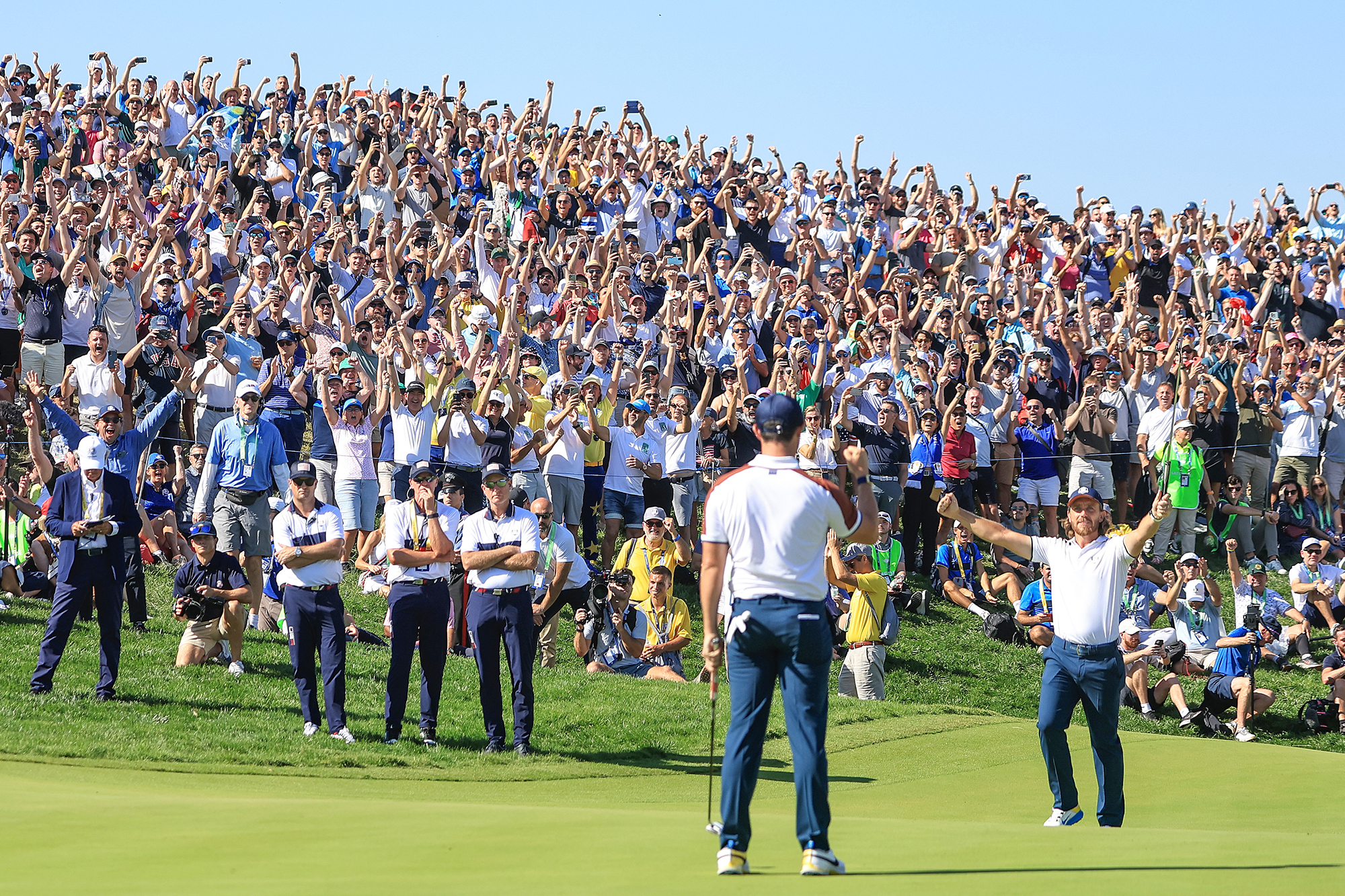5 Key Terms Heard At Every Ryder Cup (And What They Mean) - How Many Do You Know?
There are some key terms we always hear at the Ryder Cup, like dormie, foursomes and four-balls, but what do they mean? Our golf glossary provides clarity...


Subscribe to the Golf Monthly newsletter to stay up to date with all the latest tour news, equipment news, reviews, head-to-heads and buyer’s guides from our team of experienced experts.
You are now subscribed
Your newsletter sign-up was successful
Want to add more newsletters?

Delivered daily
Daily Newsletter
Sign up for all the latest tour news, gear reviews, head-to-heads and buyer’s guides plus features, tips from our top 50 coaches and rules advice from our expert team.

Once a week
Kick Point
Sign up to our free Kick Point newsletter, filled with the latest gear reviews and expert advice as well as the best deals we spot each week.

Once a week
Women's Golf Edit
Sign up to our free newsletter, filled with news, features, tips and best buys surrounding the world of women’s golf. If you’re a female golfer, you won’t want to miss out!
Like almost every golf fan on the planet, I am counting down the minutes until the first tee shot is hit at the Ryder Cup.
Anticipation is building around the latest battle between two old rivals, with some suggesting this year's showdown at Bethpage Black could be the best yet.
The Ryder Cup is my favourite event in golf to watch on the television, but for many the terminology can be a little confusing.
So, in order to help you enjoy every second of the coverage, I decided to produce an essential glossary that outlines everything you need to know about some of the keywords at the Ryder Cup in one place...
5 Key Terms Heard At Every Ryder Cup (And What They Mean)
Before we start, it's worth saying that this golfing glossary is just as useful if you are one of the lucky people attending the tournament at Bethpage Black this week.
For anyone planning to enjoy the event from home, don't forget to check out our handy guide on how to watch the Ryder Cup.
Finally, before I kick off with our first term, don't forget to drop me a comment in the box below sharing any additional terms you would like clearing up or any unique phrases from the Ryder Cup that you would like to add yourself.
Subscribe to the Golf Monthly newsletter to stay up to date with all the latest tour news, equipment news, reviews, head-to-heads and buyer’s guides from our team of experienced experts.
1. What Does Dormie Mean At The Ryder Cup?
In match play golf, the term dormie is used when a player or team is leading by the same number of holes as the amount that remain. I've outlined a Ryder Cup specific example below:
Team USA is 3-up (winning by three holes) with three holes to play, so is therefore dormie.
Essentially, being dormie means that a player or team cannot lose the match from their current position, but a tied match is still possible if the opponent wins all of the remaining holes.
2. What Does All-Square Mean At The Ryder Cup?
The match being all-square, at the Ryder Cup or in other match-play scenarios, means that both competitors have the same number of points and the game is currently tied.
If a game is all-square (or tied) at the end of 18 holes, this will result in half a point being awarded to each team.
This can be a slightly controversial subject at times, with some being upset that all-square could be disappearing in favour of the term tie.
Either way, it all adds up to the same thing. Half a point each!

The match between Viktor Hovland and Collin Morikawa ended all-square at the last Ryder Cup on American soil, handing the victory to the home team
3. What Does Foursomes Mean At The Ryder Cup?
At the Ryder Cup, there are four sessions over the first two days where pairs for Team USA and Team Europe battle for points.
Two of those four sessions are played in the foursomes format, which is essentially the term used to describe alternate shot golf.
Both players in the respective pairs hit the same golf ball, meaning one ball is in-play for each team, with players taking it in turns to hit each shot.
One player tees off on the even-numbered holes, and the other on the odd, but after the tee shot its alternate until the ball ends up at the bottom of the cup or the hole in conceded.
4. What Does Four-ball Mean At The Ryder Cup?
Similarly to foursomes, there are two four-ball sessions at the Ryder Cup.
In a four-ball match, two players for Team Europe and two players for Team USA play against each other using one ball per person. The lowest score in each pair counts on each hole, with the lowest score between all four competitors receiving the point.
Every player tees off with their own ball on every hole, and plays that ball until it is holed or the hole is conceded.

Tommy Fleetwood celebrating with foursomes partner Rory McIlroy at the 2023 Ryder Cup in Rome
5. What Does Conceding A Hole At The Ryder Cup Mean?
In match play, a team (or player) can concede a hole at any time before their ball is holed.
This is typically seen at the Ryder Cup when a team or player is in a position where winning the hole is incredibly unlikely - such as finding water hazards or penalty areas.
This helps to maintain a positive pace of play but also is a sign of good sportsmanship, as conceding the hole essentially awards the hole to your opponent immediately. The match then moves onto the next tee and play continues.
Players can also concede the match, for similar reasons of limited or no hope of success, often signified by the removing of their hat and a hand shake with their opponent.

Baz joined Golf Monthly in January 2024, and now leads the instruction section across all platforms - including print and digital. Working closely with Golf Monthly's Top 50 Coaches, he aims to curate and share useful tips on every aspect of the game - helping amateurs of all abilities to play better golf. Baz also contributes weekly to the features section, sharing his thoughts on the game we love and the topics that matter most. A member at Sand Moor Golf Club in Leeds, he looks forward to getting out on the course at least once a week in the pursuit of a respectable handicap.
Baz is currently playing:
Driver: Benross Delta XT
3-Wood: Benross Delta XT
Hybrid: TaylorMade Stealth 4 Hybrid
Irons: Benross Delta XT 5-PW
Wedges: TaylorMade RAC 60, Callaway Jaws MD5 54
Putter: TaylorMade Spider Tour
You must confirm your public display name before commenting
Please logout and then login again, you will then be prompted to enter your display name.